
The Long and Winding Road from Major to Career
Where has your UW major taken you? Share your journeys with us by submitting an Alumni Note at uwalumni.com/go/alumninotes.
What’s the first thing you remember wanting to be when you grew up? An astronaut? A movie star? A fashion designer? Chances are that at some point, that plan changed.
What, then, was the first thing you wanted to major in when you got to UW–Madison? Some students choose the UW for a specific field of study and, four years later, graduate with a degree in that field. Others come in with an idea for a major but fall in love with a different program after exploring some of the UW’s 9,000-plus courses. And others arrive on campus with absolutely no idea where to concentrate their studies.
It’s difficult to imagine college without majors, but back in 1848, when the University of Wisconsin was founded, students all took general classes in important, timeless subjects such as Latin and penmanship. It wasn’t until later, around the late 1800s, that the first semblance of “majors” appeared. Students could now choose to concentrate in various “courses” of study, including chemistry, music, and agriculture.
Now, 150-some years after the first course of study was introduced at the UW, the university boasts 232 undergraduate majors and certificates. Part of the value in attending an institution like UW–Madison is the opportunity to explore and to learn — to gain not just specific career skills, but also knowledge about yourself and how to think critically. Since its first class met in 1849, the UW has been turning out great thinkers and creators whose careers went far beyond the bounds of their majors. Laurel Salton Clark ’83, MD’87 came to the UW to study zoology. Thirteen years after earning her bachelor’s degree, she joined NASA as an astronaut aboard the Columbia space shuttle. Joan Cusack ’84 earned her degree in English and is now a household name with two Oscar nominations. And Virgil Abloh ’03 graduated from the College of Engineering, only to eventually be named the artistic director of Louis Vuitton’s menswear line.
The breadth and depth of the programs at the UW ensure that Badger grads can go on to achieve their dreams — even if those dreams are far different than what they planned. These five Wisconsin alumni prove that a degree from UW–Madison can lead you anywhere.
Brian Kachinsky ’04
Consumer Science | School of Human Ecology
Career: Professional BMX Athlete
Growing up in Neenah, Wisconsin, Brian Kachinsky remembers wanting to play in the National Hockey League. He came sort of close to that dream — he’s a professional athlete, but on wheels instead of blades.
Now living in Chicago, Kachinsky is a professional bicycle motocross (BMX) rider sponsored by two major brands, Vans and GT Bicycles.
As for his day-to-day duties, “no day is the same as the next,” he says, and that’s what he loves about his job. If he’s not in the Windy City creating social media content or promoting his sponsors, he’s traveling the world, designing international BMX parks, commentating on national television, or judging BMX contests.
In fact, he may soon be judging the biggest BMX contest — the 2020 Olympic qualifiers. “It hasn’t been determined yet if I’m going to be an Olympic judge,” he says, “but it’s quite possible.”
By the time his high school graduation rolled around, Kachinsky was already immersed in the world of BMX. But rather than turning pro then, he accepted admission to UW–Madison and declared a major of consumer science in the School of Human Ecology (SoHE).
He chose SoHE because of its holistic approach to business. But even after declaring his major, he wasn’t exactly sure what career path he’d end up on. “I was like, ‘I don’t know what’s ahead, exactly, but I want to be equipped for whatever comes my way,’ ” he says. “Sometimes in life, you need to shift or sidestep. I think having that wide range of coursework within the major and the school really helped out.”
Kachinsky officially turned pro while still in college, so he had to work extra hard to juggle schoolwork, extracurriculars, and competing on the BMX circuit. But after his UW graduation, he realized he could take his passion for BMX and turn it into a full-time career that could last a lifetime.
“I attribute my longevity as a BMX rider to my schooling, just because there are so many other ways I can be valuable to companies other than just being an athlete,” Kachinsky says. For example, he helps in product design and developing promotional strategies for the companies that sponsor him, and he’s even advocated for better skate-park facilities in meetings with the City of Chicago — a successful endeavor that he credits in part to a public-speaking class he took while on campus.
“It’s been a huge blessing,” Kachinsky says, “to have that foundation of skills that the UW gave me.”
Sarah Rueth MS’10
Environment and Resources | Nelson Institute for Environmental Studies
Career: Police Officer
Sarah Rueth figured out that part of knowing what you want to do means knowing what you don’t want to do. After earning her undergrad degree in biology from Illinois Wesleyan University, she came to the UW’s Nelson Institute for a master’s. “I thought I was going to work for a nature conservancy or the DNR [Department of Natural Resources],” she says. It was a specific UW research project that prompted her to attend, but while working on that research, she realized it wasn’t for her. “I really enjoyed learning about the topic, but I figured out that I didn’t like the job options as much,” Rueth says. “I don’t like being at a desk, but I’m not outdoorsy enough to be one of those people who goes out in the wild.”
But then something happened while she was living in Madison that has happened to a lot of local residents: a parking ticket. While dutifully paying her ticket online, she perused the Madison Police Department (MPD)’s website and found a page laying out their core values: dignity, service, community partnership, integrity, continuous improvement, diversity, and leadership. “I was like, ‘Wow. Those are all things that are important to me,’ ” Rueth recalls. “[I thought] it would be really cool to have a job that incorporates all that.” With the broad range of classes required for her master’s program, Rueth was able to explore her newfound interest in policing by taking a class in criminology.
After completing her degree, Rueth applied and was accepted to the MPD academy. She worked as a correctional officer and a DNR ranger (just as she had initially planned) before accepting a position as a police officer in Portage, Wisconsin. The lessons she learned in the Nelson Institute have carried over and helped inform her daily work on the force. “The Nelson Institute is all about community partnerships and taking a whole bunch of diverse views from different people and different studies and different branches and combining it into one thing,” she says. “That’s something we’re doing as well in policing. We’re trying to develop these partnerships before the problems happen. We’re trying to pull from a lot of different places to get our ideas and improve our practices.”
To top it all off, Rueth’s job as a police officer has meshed with some of her childhood dreams; the first thing she remembers wanting to be when she grew up was “either a Disney cartoonist or a veterinarian.” One day on the job, she got a traffic call in response to an orphaned fawn trying to cross the road. Rueth rescued the little Bambi and took her to a wildlife rehabilitation center, where she was cared for until she was ready to strike out on her own.
Bobby Parrish ’00
Finance, Investment, and Banking | Wisconsin School of Business
Career: Food Blogger and Social Media Influencer
Bobby Parrish followed a more traditional track — attending the UW to major in something specific (business) to do something specific (work in business). As a high schooler, he worked at a country club as a golf caddy. He remembers being around successful businesspeople, stock-market traders, and entrepreneurs, which led him to his first career goal: “I noticed that the people who were really successful were entrepreneurs,” he says. “No matter what I did, I wanted to work for myself and be my boss.”
After a first semester at the University of Northern Colorado, Parrish transferred to the UW and found the Wisconsin School of Business. Sometime around his sophomore year, he figured out that he wanted to specialize in trading. “I graduated in December of 2000, and I went to work immediately afterward. Like, the next week,” he says. Parrish worked as a stock trader at a small company outside of Chicago for a few years, then started his own trading company.
It wasn’t until he’d worked in the industry for several years that Parrish decided to turn his longtime passion into a career. “I always had a passion for cooking,” he says. Working from home with his own company, he was able to spend more time in the kitchen and entertaining friends. Eventually, Parrish and his wife, Dessi, created their first cooking video and put it on YouTube. As they continued making videos, their followers grew — now more than 1.2 million people follow FlavCity on YouTube and other social media.
Both Parrish and his wife have left their day jobs to focus all of their time and energy on developing FlavCity and bringing relevant content to their hungry fans. But, ever the businessman, Parrish first crunched the numbers to see how the income he’d gain from FlavCity would compare to what he had as a trader. “I knew that if I put my full effort behind it, the sky was the limit.” Right he was: Parrish has since shared recipes on numerous cooking shows, been a winner on an episode of Guy’s Grocery Games on the Food Network, and even published a cookbook — Keto Meal Prep by FlavCity. “We live in such an amazing time right now, where you can pretty much do whatever you want,” he says. Parrish encourages college-age kids to test the waters before committing to a major or a job. “Whatever you are passionate in, explore doing that.”
Christian Schauf ’03
Agricultural Journalism and Agricultural Business Management | College of Agricultural and Life Sciences
Career: Founder and CEO of Uncharted Supply Company; Creator of 72-Hour Survival Kit
“I applied to one college,” says Christian Schauf. “And that was Wisconsin.” He laughs at his teenage bravado now, thinking about how differently things could have gone if he hadn’t been admitted. While he was growing up on a farm in rural Wisconsin, Schauf’s parents steered him to pursue a degree in the College of Agricultural and Life Sciences (CALS) at UW–Madison. As a freshman, he didn’t know what he would do with his CALS degree, but he still knew that he was in the right place. “The best thing Wisconsin taught me was how to think,” he says. “That’s the beauty of what an environment like that gives you.”
The first dot on Schauf’s career map after college was playing in a band — Catchpenny — which toured the Middle East performing at U.S. military bases. There he started one of his first entrepreneurial ventures: building PA systems that fit into Blackhawk helicopters so the band could play at more small, remote bases. After touring in Iraq some 40 times, Schauf transitioned to corporate life, helping to found Crispin Cider (yes, that one) before taking on various marketing jobs. “Now I’m in Utah building survival kits!” he laughs.
What sent Schauf down the path to his current gig as founder and CEO of Uncharted Supply Company was something that all Wisconsinites are familiar with: snow. He was working out in Orange County, California, and decided to take a ski trip with some buddies. While he was driving to Steamboat Springs, Colorado, it started snowing. No big deal for Schauf, but for the Californians? “It added eight hours to our drive,” he recalls. “I was just watching people self-destruct around me. These are people who live on a fault line day in and day out. If two inches of snow is going to do this, what’s a 7.0 earthquake going to do?”
That’s when he saw a space in the market for what ultimately became The Seventy2, a complete 72-hour survival system that’s hyperorganized and fits neatly into a backpack. After designing the product and closing a successful Indiegogo campaign, Schauf got a call to appear on ABC’s Shark Tank. From there, the system — and the company — took off. “We’re not building a $5,000 kit for a guy on SEAL Team 6,” Schauf explains. “This is a kit designed to get anyone, novices and experts, through emergencies big and small.” Still, Schauf’s survival system has become a favorite of government organizations, such as the CIA and FBI, as well as companies including Nike, Warner Brothers, and Airbnb. In 2019, Schauf plans for the company to triple in size and release a host of new products.
“Just start” is Schauf’s advice for incoming students wondering what they’ll be. “Take the first step. Be moving in a direction. It may not be a straight line, but if you continue to head toward your due north, you’re gonna get there.”
Dalia Mogahed ’97
Chemical Engineering | College of Engineering
Career: Director of Research, Institute for Social Policy and Understanding
Most kids dream of becoming something flashy — a movie star, ballerina, race-car driver, and so on. But Dalia Mogahed dreamed of something much more profound. “What I remember wanting to do was a pursuit of justice,” she recalls. When she started at the UW, she thought she’d end up helping people through science. Her parents were professors in the College of Engineering, so declaring a chemical engineering major felt natural. For three summers, she interned with Proctor & Gamble (P&G), which led to a job offer before her graduation in December 1997. After walking the stage, Mogahed moved to Cincinnati to work in P&G’s product-research division.
After three years at P&G, Mogahed enrolled in the MBA program at the University of Pittsburgh. But as she got in the car to make the move from Cincinnati to Pittsburgh, the news broke: the day was September 11, 2001. “That was kind of a turning point in my life,” Mogahed reflects. Back in college, she had joined a number of extracurricular, activism-focused groups. “I was very involved in work that had to do with educating the campus community about Muslims and Islam and raising awareness about the suffering of people around the world,” she says. “When 9/11 happened, that activist in me got reactivated. I felt like I needed to do more to build bridges between people of different backgrounds.”
As Mogahed began her MBA studies, she also started an outreach program through the local Islamic center. But once grad school came to an end, she took a job with Gallup as a management consultant and “put that passion on the back burner.” While at Gallup, Mogahed was brought onto a team that was working on a then-fledgling idea: the Gallup World Poll. Her role was to analyze survey results from Muslim-majority countries. “It was really exciting for me to be able to analyze that data,” Mogahed says. “On my evenings and weekends, I was poring over that data, bringing the skills I learned as an engineer to this work.”
She created a presentation on her findings, which led to her appointment as the executive director of research for the Gallup Center for Muslim Studies. In 2007, she coauthored a book, Who Speaks for Islam? What a Billion Muslims Really Think, which was sent to all members of Congress. Only a few responded; one was then-senator Barack Obama. When Obama was elected president, Mogahed was appointed one of his top advisers on Muslim affairs. Today, she is the director of research for the Institute for Social Policy and Understanding, an organization created post-9/11 to educate the country about American Muslims and empower that community to “develop social policy, contribute to public policy, and innovate thought-leadership.”
As for that chemical engineering degree? Mogahed says her current work isn’t too far afield. “What I get to do is apply the tools of the scientific method — objective inquiry, research — to a highly contested, emotional topic,” she says. “It’s very valuable to have that science background: [it’s about] putting aside your bias and looking at the data objectively.”
Chelsea Schlecht ’13 majored in communication arts and English at the UW, went on to graduate school for magazine journalism, and, remarkably, is now a magazine journalist.
Published in the Fall 2019 issue
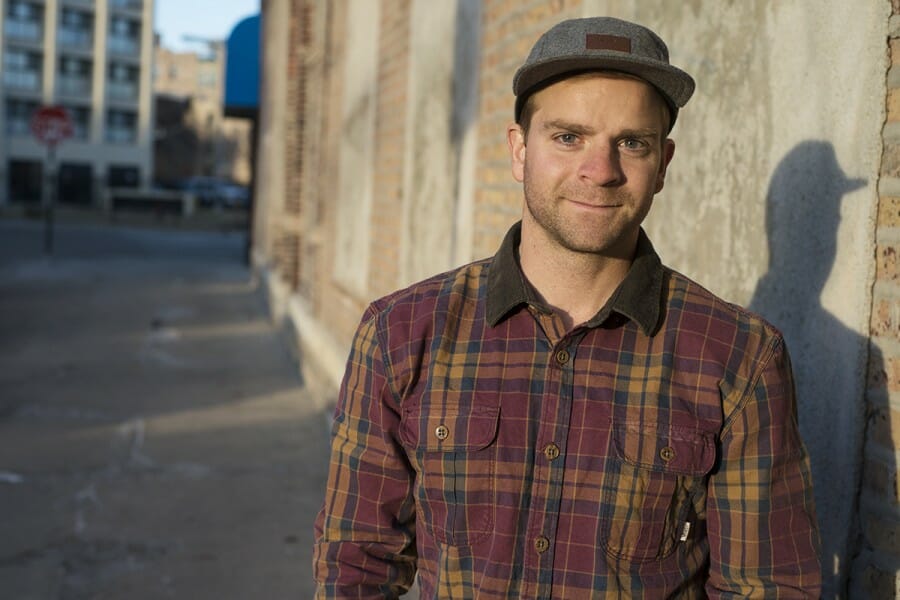
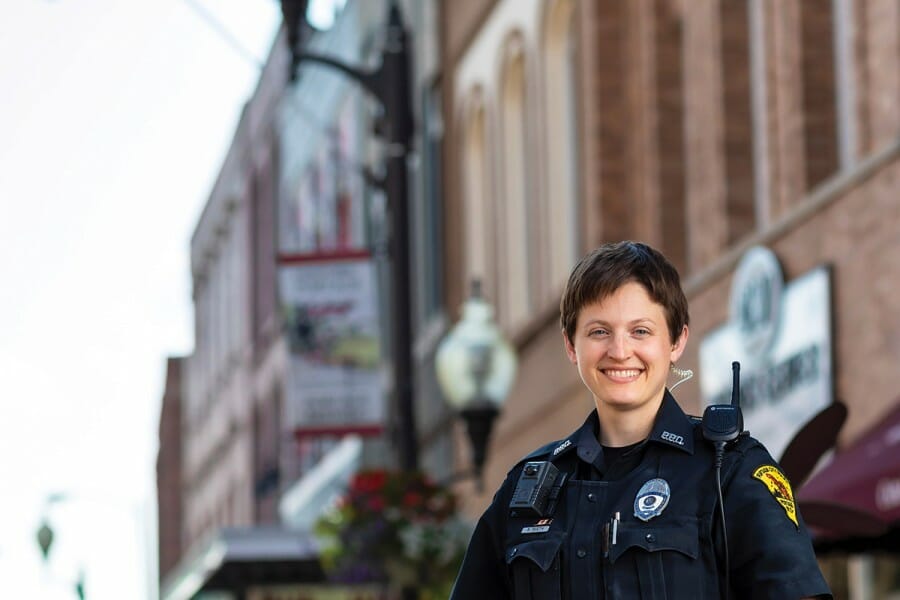
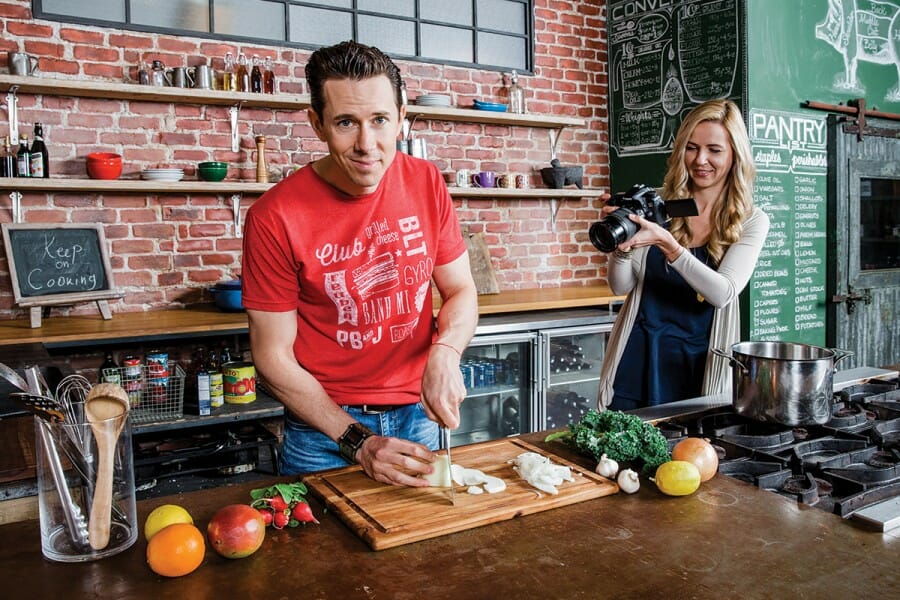
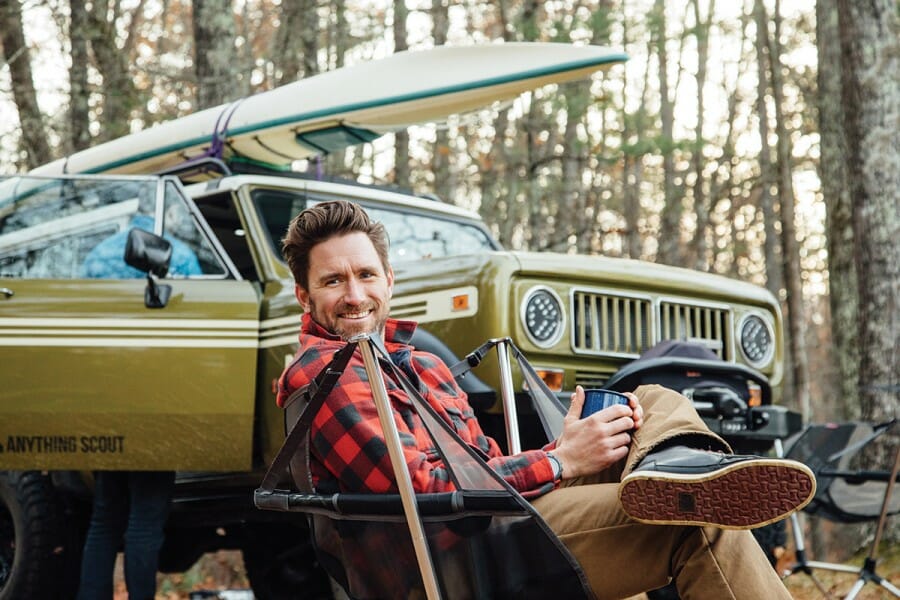
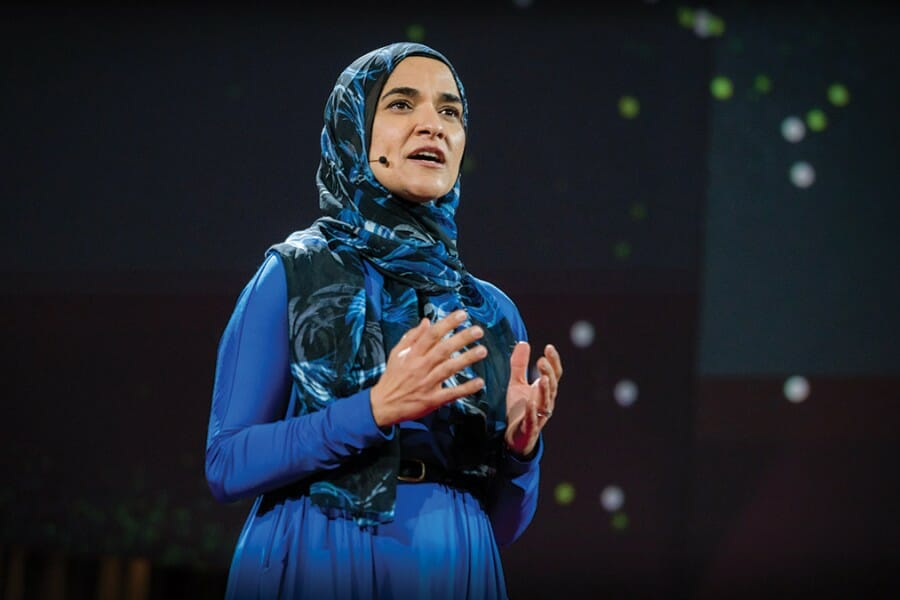


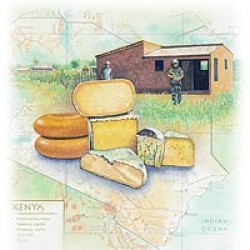
Comments
No comments posted yet.